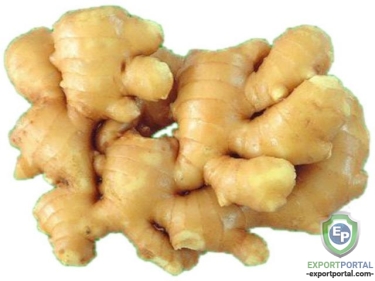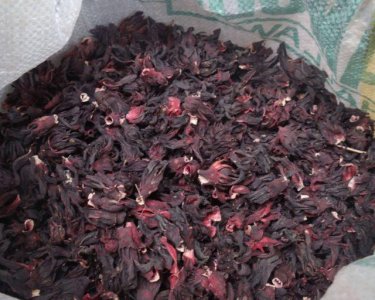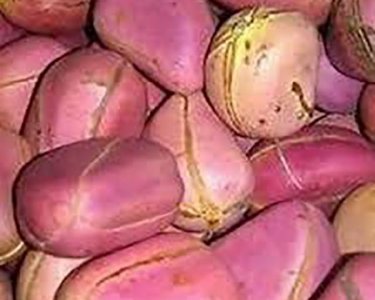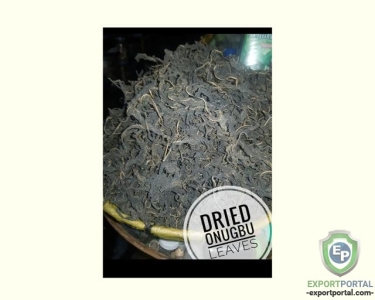Couldn't find the product you want?
Fill out this form to request the product.
Export from Nigeria
Nigeria's economy represents a middle income economy, mixed and emerging market, with expanding financial, service, communications, technology and entertainment sectors. It is ranked as the 21st largest economy in the world in terms of nominal GDP, and the 20th largest in terms of Purchasing Power Parity. It is the largest economy in Africa; its re-emergent manufacturing sector is the third-largest on the continent, and produces a large proportion of goods and services for the West African subregion. Nigeria recently changed its economic analysis to account for rapidly growing contributors to its GDP, such as telecommunications, banking, and its film industry.
The restoration of democracy and subsequent economic reforms have successfully put Nigeria back on track towards achieving its full economic potential.
Nigeria is the 12th largest producer of petroleum in the world and the 8th largest petroleum exporter, and has the 10th largest proven reserves. Petroleum plays a huge role in the Nigerian economy, accounting for 80% of Government earnings. However, the 100% mining capacity has still to be reached.
Nigeria also has a wide array of underexploited mineral resources which include natural gas, coal, bauxite, tantalite, gold and zinc. Despite huge deposits of these natural resources, the mining industry in Nigeria is only beginning to develop. Nigeria's manufacturing industry includes leather and textiles, plastics, processed food and auto manufacturing industry producing buses, cars, trucks and SUVs.
Cocoa and rubber are the leading non-oil export products of Nigeria and foreign exchange earners.
Exports of oil and natural gas is the main factor influencing Nigeria's growth and accounts for more than 91% of total exports.
Nigeria's main export partners are United States, India, Spain, Brazil, South Africa, United Kingdom, Netherlands, France, Germany, Japan.
Nigeria's main exports are:
- Crude Petroleum
- Petroleum Gas
- Refined Petroleum
- Rubber
- Cocoa Beans
- Milk
- Special Purpose Ships
- Coconuts, Brazil Nuts, and Cashews
- Crustaceans
- Other Oily Seeds
Import to Nigeria
Nigeria is considered a mixed economy with emerging market, and has already reached lower middle income status according to the World Bank, with its rich supply of natural resources, well-developed financial, communications, transport sectors and stock exchange, which is the second largest in Africa. Nigeria is a member of the MINT group of countries. It is also listed among the "Next Eleven" economies set to become among the biggest in the world. Nigeria is a founding member of the Commonwealth of Nations, the African Union, OPEC, and the United Nations amongst other international organizations.
Before the Nigerian civil war, Nigeria was self-sufficient in food. Agriculture used to be the principal foreign exchange earner of Nigeria, but after the war Nigeria relies mostly upon food imports to sustain itself. The agricultural sector is being transformed by commercialization at the small, medium and large-scale enterprise levels. Major crops include beans, cashew nuts, cocoa beans, though Nigeria mostly has to import foodstuffs to fill up the need.
In 2013, Nigeria introduced a policy regarding import duty on vehicles to encourage local manufacturing companies in the country. In this regard, some foreign vehicle manufacturing companies like Nissan have made known their plans to have manufacturing plants in Nigeria. Ogun is considered to be the current Nigeria's industrial hub, as most factories are located in Ogun and more companies are moving there, followed by Lagos.
Nigeria imports mainly industrial supplies, capital goods, food and beverage, fuel and lubricants, transport equipment and parts and consumer goods. 43% of total Nigerian imports come from Asia, 34% from Europe; 15% from America and 7% from Africa.
Nigeria's main import partners are China, United States, India, Netherlands, United Kingdom, Belgium, Luxembourg, Brazil, France, Germany, South Africa.
Nigeria's main imports are:
- Refined Petroleum
- Cars
- Rice
- Wheat
- Telephones
- Non-fillet Frozen Fish
- Delivery Trucks
- Raw Sugar
- Packaged Medicaments
- Motorcycles
We welcome you to the gardening & planting section of Export Portal! Here you will always find a fine selection of the most beautiful and strong trees, gardening plants and flowers, hedging plants, garden plants and shrubs, all kinds of plants for sale, scented garden plants to scent your garden on warm summer nights, many types of garden plants from all the world, as we have international sellers presenting their production of trees and flowers online. We offer you to purchase herbal garden plants and garden bed plants with us!
Give your garden a new look every growing season with annuals. Their life cycle lasts one season which allows for lots of experimentation. We have a great selection of annual flowers that will help you decorate your garden differently every year and give a space to experimenting with its look every coming year!
Whether you want to add some attractive ornamentation to your yard or a shady respite from the bright sun, our selection of trees has got you covered. Browse for plants and seeds online with Export Portal from a large selection of garden flowers and plants for sale. Find cottage garden plants for shade and decoration, flower bushes, rose flowers, African lily, medicinal flowers, orchid flower, forget me not flowers. Order flowers and purchase trees online, find unique garden plants for your yard, desert garden plants, climbing plants for decorating your hedges and conceal your garden from the view of passersby to give you a feeling of seclusion and safety. Choose from our beautiful garden plants for sale to make your garden the most beautiful of all! We offer you exotic garden plants and rosemary plants, spring flower bulbs, saffron bulbs for sale, small tree species in our online plant store.
Flower gardening takes special planning and preparation because flowers bloom in varying sequences throughout the year. Try mixing and matching for gorgeous color in your garden. With our variety of plants for sale you will be able to satisfy all of your gardening dreams and plans!
Trees and shrubs are either deciduous or evergreen. Deciduous trees lose their leaves in the fall and are bare all winter, though the leaves often give a final show of beautiful colors before they drop. Evergreen trees and shrubs retain their foliage year-round. Some, such as southern magnolia, feature broad leaves. Others, such as pines, have needled foliage.
Choose from our hazelnut trees, small trees for landscaping and big trees to shade your backyard, apricot trees with promising of fresh and aromatic fruits every year! Look through our tulip trees collection, tropical fruit trees, outdoor artificial trees, plum tree varieties and cherry trees to give you a bountiful fruit yield every year, beautiful trees and shrubs, walnut trees for sale, chestnut tree, young trees for sale. Find mulberry trees, acacia tree, wholesale fruit trees for your fruit garden or patio fruit trees, also palm tree for sale, nut trees, mountain ash tree or birch trees for sale.
Every kind of cultivated tree has assets that suit it for some landscape use. Each also has certain requirements critical to its survival in the yard. Some are more cold-hardy than others, so check their zone rating for hardiness. Many do best in rich, moist, woodsy soil that's on the acid side. Others prefer more alkaline soil that tends to be dry because it's not as rich in moisture-holding organic matter. Some trees, like swamp red maples and bald cypress, can handle truly wet soil.
Also keep in mind that trees also have their liabilities. Some have thorns that make them unsuitable for homes with children. Others are weedy. Some are messy - sycamores and relatives of the London plane tree drip fuzzy balls, bark, and twigs all over the place. The spiked balls from sweet gum trees and the runaway roots of willows present challenges as well. However, if you choose the right place for some of these less-desirable varieties, you often can overlook their faults and enjoy their virtues instead.
Browse out collection of agricultural products: blueberry bush for sale, evergreens, beauty berry bushes, decorative bushes to give your garden a new look, camellia bushes, rose trees, gardenia bushes, spring flowering shrubs, long stem rose bushes for sale, black elderberry bush, holly bush varieties, red currant bushes, lilac bushes for sale, gardenia bush, pomegranate bush, blue moon rose bushes and more.
Customs requirements of Nigeria
Nigeria Customs Contacts
Website: https://www.customs.gov.ng/index.php
E-Mail: info@customs.gov.ng
Address: Abidjan Street,Wuse, P.M.B. 26, Zone 3, Abuja - FCT, Nigeria
Telephone: 09 4621597
Fax: 09 5234694
Nigeria is a federal constitutional republic in West Africa, bordering Benin, Chad, Cameroon and Niger and having the Atlantic Ocean coastline. Nigeria includes 36 states and the Federal Capital Territory, where the capital, Abuja is located. Nigeria is officially a democratic secular country. Nigeria is often referred to as the "Giant of Africa", owing to its large population and economy. With approximately 174 million inhabitants, Nigeria is the most populous country in Africa and the seventh most populous country in the world.
Import procedures
Any person intending to import physical goods into Nigeria shall in the first instance process Form "M" through any Authorized dealer bank irrespective of the value and whether or not payment is involved.
The Form "M" shall have a validity period of six months for all imports except Plants and Machinery which shall have a validity period of one year. Requests for subsequent revalidation thereafter should be directed to the Director of Trade and Exchange Department at the Central Bank of Nigeria.
Supporting documents shall be clearly marked "Valid For Forex/Not Valid for Forex" as appropriate i.e. depending on whether or not foreign exchange remittance would be involved.
All applications for goods subject to Destination Inspection shall carry the " BA" code, while those exempted shall include "CB" in the prefix of the numbering system of the Form "M". Payments for goods exempted from Destination Inspection under the Scheme, would not be carried out in the Foreign Exchange Market, without a prior approval from the Central Bank of Nigeria. The list of goods exempted from Destination Inspection shall be as approved by the Honorable Minister of Finance and the approval shall be a pre-condition for the completion of Form M exempted from Destination Inspection.
The Form 'M' and the relevant pro-forma invoice (which shall have a validity period of three months) shall carry a proper description of the goods to be imported to facilitate price verification:
- Generic product name, i.e. product type, category
- Mark or brand name of the product where applicable
- Model name and or model or reference number, where applicable
- Description of the quality, grade, specification, capacity, size, performance etc.
- Quantity and packaging and/or packing
Form 'M' shall be valid for importation only after acceptance by the relevant Scanning /Risk Management Provider. Consequently, Authorized Dealers are to confirm acceptance of the Form M before proceeding with other import processes.
Documents in respect of each import transaction shall carry the name of the product, country of origin, specifications, date of manufacture, batch or lot number, Standards to which the goods have been produced (e.g. NIS, British Standards - PD. ISO, IES, DIN, etc).
All goods to be imported into the country shall be labeled in ENGLISH in addition to any other language of transaction; otherwise the goods shall be confiscated.
Where import items such as food, drinks, cosmetics, drugs, medical devices, chemicals, etc. are regulated for health or environmental reasons, they shall carry EXPIRY dates or the shelf life and specify the active ingredients, where applicable.
Electrical appliances (fluorescent lamps, electric bulbs, electric irons and ties, etc) shall carry information on life performance while cables shall carry information on the ratings.
All electronic equipment and instruments shall carry:
- Instruction Manual;
- Safety information and/or safety signs;
- A guarantee/warranty of at least six months.
All computer hardware, software, operating and embedded system shall continue to be Year 2000 compliance.
Any wrong or fraudulent misrepresentation of facts will result in delays and/or impoundment/seizures.
Importation of Blank products and/or without valid Form 'M' shall automatically qualify for seizure and destruction without warning, and subject to prosecution.
All imports into the country shall be accompanied by the following documents:
- Combined Certificate of Value and Origin (CCVO), and contain the following details in addition to those on the pro-forma invoice:
- Form "M"
- Adequate description of goods
- Port of destination (the actual port shall be specified e.g. Tin Can, Apapa, Kano, Onne, etc.)
- Shipment identification, date of shipment, Country of Origin, Country of supply
- Packing list
- Shipped/ Clean on Board Bill of Lading/Airway bill/Way bill/Road Way bill
- Manufacturer's Certificate of production which shall state standards and where it is not applicable, the Phytosanitary Certificate or Chemical Analysis Report should be made available.
- Laboratory test certificates for chemicals, foods, beverages, pharmaceuticals, electrical appliances and other regulated products, where applicable.
Export procedures
All goods (including oil/its derivatives and non-oil goods) exported from Nigeria shall be subject to inspection by Inspection Agent(s) appointed for that purpose by Government.
All exports exempt from inspection by the Inspection Agent(s) are listed in SCHEDULE "A" appended.
For the avoidance of doubt, goods prohibited for exportation from Nigeria as contained in the annual Fiscal Policy guidelines shall not be processed by the Inspection Agents. Goods on the current Export Prohibition list are detailed in SCHEDULE "B" appended.
The Inspection Agent(s) shall inspect the quality and quantity of all exports as well as the true value of goods to the consignee and shall issue a Clean Certificate of Inspection (CCI) in respect of such goods within 72 hours after the inspection of the goods. However, where a written complaint or protest has been lodged by the consignee or his agent on oil and gas exports, the relevant CCI shall be issued within a maximum period of 30 days.
In the event of uncovering discrepancies that cannot be corrected immediately, the exporter shall be issued with a "Non-Negotiable Certificate of Inspection" (NNCI). It is however in the interest and integrity of the exporter to correct the discrepancies to enable the Inspection Agent(s) issue the appropriate certificate and endorse the commercial (final) invoice accordingly.
Exporters shall open a domiciliary account with any bank in Nigeria and this same bank shall issue the Exporter with a Nigerian Export Proceeds Form (NXP Form) in six copies for completion in respect of each export transaction, The Exporter shall ensure that the export proceeds are credited to this account.
Having collected a set of NXP Form from his/her bank, the Exporter completes the Form in six copies, and returns same to the bank with a contract of sale or proforma invoice. The bank shall register and endorse same and retain the original copy. The remaining five copies shall be forwarded to the Inspection Agent(s).
The Exporter shall retain a photocopy of the NXP Form and use the NXP number as reference in all dealings with his bank, Central Bank of Nigeria, Inspection Agents and Nigeria Customs Service.
The NXP Form shall be utilized within six months from the date of registration, subject to renewal for 3 months by the dealing bank. Subsequent requests for renewal are to be approved by the Director, Trade and Exchange Department, Central Bank of Nigeria, Abuja otherwise it must be returned to the exporter's bankers for cancellation.
The exporter shall be required to pay to a designated bank, the Nigerian Export Supervision Scheme (NESS) Administrative charge of 0.5% and 0.15% of FOB value of the intended non-oil and oil/gas exports, respectively. The designated bank shall remit this to the NESS fee account in the Central Bank of Nigeria (CBN), If after inspection, the FOB value is found to be higher than that declared, then additional NESS fee shall be paid by the exporter accordingly.
Having completed the NXP Form, the exporter shall collect a REQUEST FOR INFORMATION (RFI) Form from the Inspection Agent or download from the Inspection Agent's website. The purpose of the RFI Form is to enable the inspection company to coordinate with the exporter, a suitable time and place for the physical inspection. It is therefore essential that exporters provide in the RFI, all the required information promptly.
The completed RFI shall be submitted to the Inspection Agent(s) along with all relevant documents relating to the export transaction.
For oil/gas exports, the exporter shall also collect a BILL OF LADING DECLARATION FORM from the Inspection Agent(s) or download from the Inspection Agent's website which shall be completed after loading and thereafter submitted to the Inspection Agent(s).
Upon receiving the relevant documents, the Inspection Agent(s) shall open a file accordingly.
Any person intending to export any goods from Nigeria shall give notice of not less than 10 working days to the Inspection Agents prior to shipment.
The inspection shall take place at the seaports, airports, terminals, or other points of dispatch or at the point of production and/or storage.
The exporter shall provide necessary logistics, such as ladder, fork lift trucks, labor, etc., to enable the Inspection Agent(s) perform their quality/quantity inspection and pricing analysis.
Where exports involve processed food, drugs, animals or plants, crude oil, liquefied natural gas, liquefied petroleum gas, condensate, Dual Purpose Kerosene (DPK), lubricants and grease, the necessary Government Agencies shall be invited for certification.
In the case of oil and gas exports, there shall be final joint inspection by the Inspection Agent(s), Nigeria Customs Service (NCS), the Department of Weights and Measures of the Federal Ministry of Commerce and Industry and Department of Petroleum Resources (DPR). Exporters should note that, units of measurement with respect to quality and quantity determination in the oil and gas industry are unique and should be appropriately reflected on the NXP Form.
Export prohibition list:
- Maize
- Timber (rough or sawn)
- Raw hides and skin (including Wet Blue and all unfinished leather)
- Scrap Metals
- Unprocessed rubber latex and rubber lumps
- Artifacts and Antiquities
- Wildlife animals classified as endangered species and their products
Sources:
http://www.shipperscouncil.com/export_guidelines.htm
https://www.delmas.com/static/eCommerce/Attachments/Nigeria.pdf
https://www.customs.gov.ng/ProhibitionList/import.php



